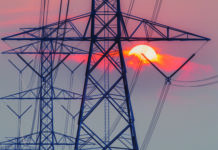This year’s Energy Institute (EI) Energy Barometer a survey of energy professionals who are its members shows that confidence in meeting the 2050 net zero target has dropped significantly. 70% don’t expect the UK to meet or get close to the target in time, compared to 54% last year. Sentiment on all key areas of energy policy has remained static or fallen back, apart from nuclear energy.
Also the EI is calling for an urgent and enduring energy efficiency programme to help British householders weather spiralling prices and the wider energy crisis is the central demand.
Energy Barometer 2022: CRISIS RESPONSE offers a mixed verdict on the UK’s response to date. There is support for the ambition around renewable energy deployment, as outlined by ministers in the British Energy Security Strategy. But the survey finds common cause with business groups, consumer campaigners and environmentalists in calling for efforts on the demand side to be put on an emergency footing.
In the survey, energy efficiency is ranked as the most important response to the crisis, but 70% don’t see existing energy efficiency policy having had any positive effect over the past year, and nine in ten see fuel poverty policy as failing.
Four steps are prescribed, with clear majorities of those surveyed calling for:
- Help now for the most vulnerable – Ahead of this winter, subsidies for the lowest income homes.
- A nationwide retrofit programme – to get all homes to energy performance rating C or above, with subsidies provided where necessary.
- Tailored advice and information – Government-backed behaviour change campaigns to help householders manage energy use.
- Skills investment – Prioritise green jobs in the homes and buildings sector.
The survey focuses on the UK’s response to the triple crisis engulfing the energy sector. Russia’s devastating invasion of Ukraine has upended Europe’s energy security assumptions; consumers are at the sharp end of this and other international factors, leading to spiralling energy prices; and all against the backdrop of worsening climate change impacts and emissions projections.
 EI President Juliet Davenport OBE HonFEI said, “Spiralling gas prices have fuelled a cost-of-living crisis, and I agree with the Energy Barometer’s central finding that home energy efficiency has to be treated as a national emergency. Alongside this, with the plummeting costs of solar and wind, an energy system built around renewables offers Britain’s consumers, its economy and the planet the best chance of a resilient, clean, affordable energy future.”
EI President Juliet Davenport OBE HonFEI said, “Spiralling gas prices have fuelled a cost-of-living crisis, and I agree with the Energy Barometer’s central finding that home energy efficiency has to be treated as a national emergency. Alongside this, with the plummeting costs of solar and wind, an energy system built around renewables offers Britain’s consumers, its economy and the planet the best chance of a resilient, clean, affordable energy future.”
Prof Robert Gross FEI, EI trustee and UKERC Director, said, “We know consumers are up for playing their part – bill hikes are hitting them hard, and polling tells us they support action to reduce emissions too. But it’s been a decade since the last national public information campaign on energy and climate change. The Barometer backs a call for central government to play a leading role in providing quality tailored advice to change the public’s energy behaviour and play their part in the crisis response.”
EI CEO, Nick Wayth CEng FEI said, “The issues raised in this year’s Barometer highlight the real hardship and challenges faced by society from the triple energy crisis. We must seize the opportunity to accelerate our efforts to deliver the energy transition: driving efficiency, expanding low-carbon supplies and decarbonising how we use natural gas.”
The main findings from Energy Barometer 2022: CRISIS RESPONSE:
- There’s a triple energy crisis and respondents to the survey rank spiralling prices as the greatest current concern, followed by climate change and security of supply.
- Energy efficiency is ranked as the priority medium and long term response, followed closely by building out renewables. Support is lower for new nuclear and new domestic oil and gas production.
- But the demand side is neglected by government policy. 70% don’t see existing energy efficiency policy having had any positive effect over the past year. Nine in ten see fuel poverty policy as failing.
- Ahead of this winter, a majority backs subsidies for the lowest income homes, followed closely by removing VAT on energy. Support is lowest for the provision of a rebate to all consumers.
- Longer term, getting all homes to EPC level C or above is ranked joint highest for protecting households from price volatility, with subsidies provided where necessary, alongside investment in UK-based zero carbon energy sources.
- Tailored advice and information is needed. 58% look to central government to lead behaviour change campaigns to help consumers manage their energy use. 71% point to green jobs in the home and building sector as a priority for skills development.
- Appetite is mixed on market intervention. While more than three quarters advocate reform of international oil and gas markets, and almost half support some form of government control of energy, only a third support the windfall tax on excess oil and gas profits.
- Confidence in meeting the 2050 net zero target has dropped significantly. 70% don’t expect the UK to meet or get close to the target in time, compared to 54% last year. Sentiment on all key areas of energy policy has remained static or fallen back, apart from nuclear energy.
- The UK’s performance in Glasgow is given a mixed response, with future COP presidencies encouraged to emulate successes in brokering multilateral side agreements, while putting greater effort into closing the gap between NDCs and 1.5C.
- The crisis context is influencing respondents’ own organisations. Almost half have introduced new energy efficiency or emission reduction measures over the past year; more than a quarter have reduced energy use due to Russia’s invasion of Ukraine.



